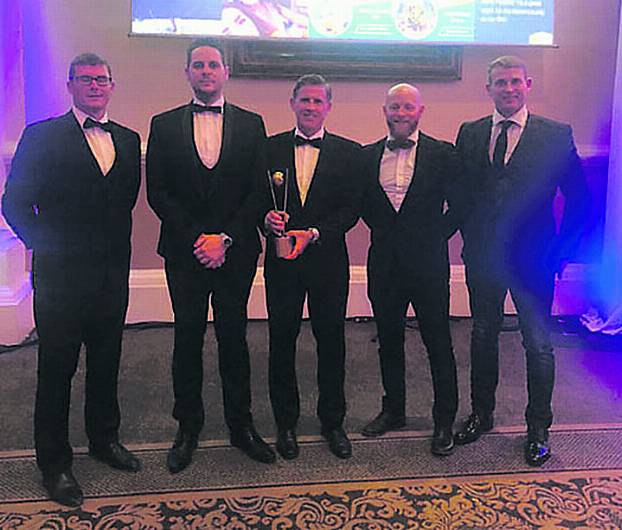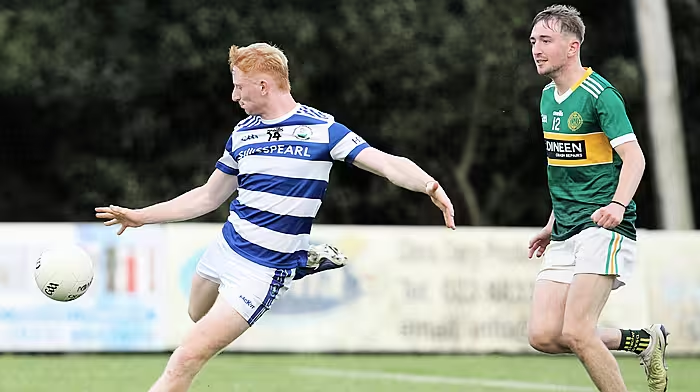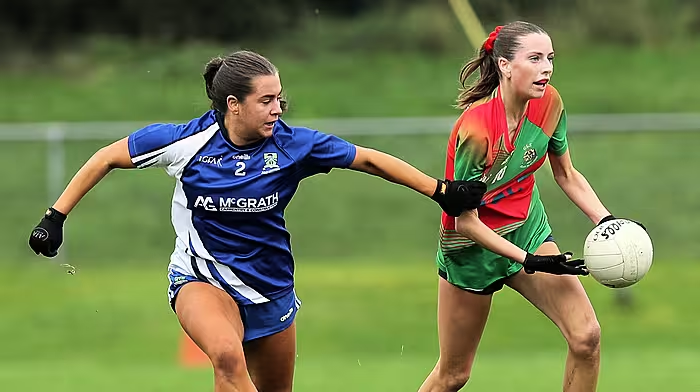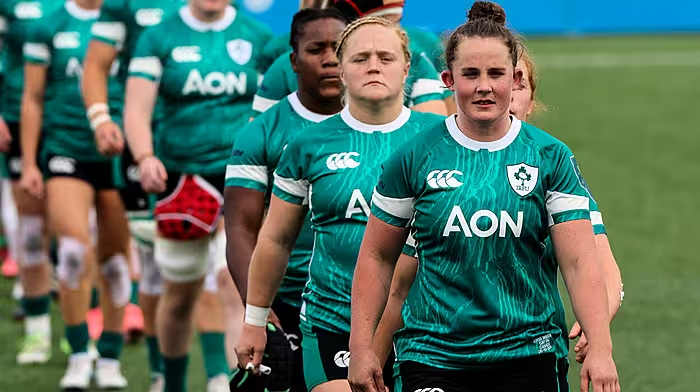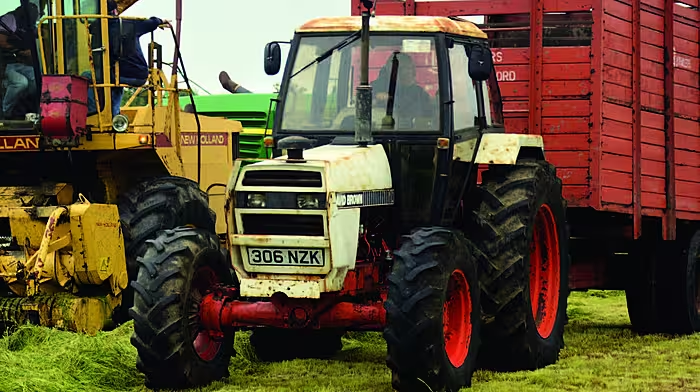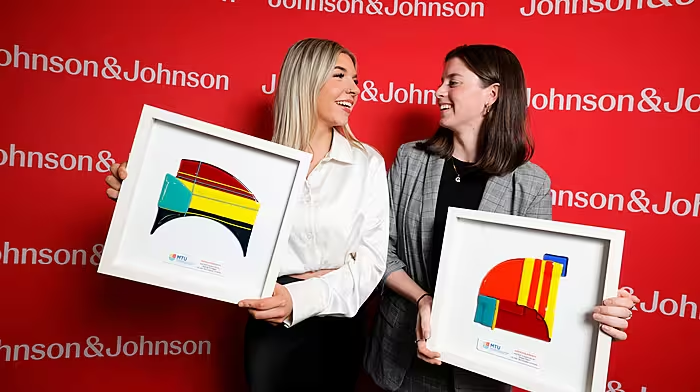Niall Collins is a fan of numbers. He's also a sports nut. Put the two together and you have Cork camogie's performance analyst who is helping the Rebels stay ahead of the chasing pack. GER McCARTHY spoke to the Dunmanway man
Niall Collins is a fan of numbers. He’s also a sports nut. Put the two together and you have Cork camogie’s performance analyst who is helping the Rebels stay ahead of the chasing pack. GER McCARTHY spoke to the Dunmanway man
CORK camogie statistician Niall Collins says that recording events in games isn’t just a box-ticking element but rather a key instrument in improving future decision-making.
As the Rebels, under manager Paudie Murray, have risen to the top of the tree in recent years, Dunmanway native Collins – a cousin of the boss – has played an integral role as part of the management team.
A Software Architect with 8West Consulting in Cork, Niall Collins first became involved five years ago.
‘I initially got involved back in 2014 when Paudie became manager,’ he says.
‘He contacted me when he was putting together his management team for that year and asked if I’d like to get involved. My background is in computer software development and that, coupled with my interest in a wide range sports, led me to first get involved in the role. Prior to that, Paudie was in charge of the Dohenys football team, where I would have worked closely with him on a lower scale for about a year.
‘When I first got involved with the Cork camogie team, I did a lot of research on the various software packages that were out there for recording match statistics. I decided on Performa Sports and still work closely with them. That gives me in-game analysis, post-game analysis and the ability to share videos and information with both the players and management.
‘I’ve also worked with other software tools like Dartfish, SportsCode and Match Sport just to help gather and process additional bits of information.’
When it comes to statistics, Collins is responsible for producing live data as a match is progressing whilst also generating in-depth post-game analysis reports.
‘Normally, the process before any game is to produce some pre-match data analysis of ourselves as well as the opposition team,’ he says.
‘This is my fifth year involved with Cork and I have built up a large amount of data on all the opposition we have faced. I probably have a profile of most of the camogie players in Ireland. Prior to games, I produce a report for the Cork management team which they analyse and review before presenting statistics to the players. During the actual game itself, I gather various live statistics with a couple of other people who work with me.
‘That information is fed to management via radio communication, primarily to Paudie. Those live statistics are used as one the tools in the management team’s decision making. At half time, I also present information to Paudie to better help and understand how things are proceeding.’
There are as many myths about gathering match information statistics as there are people who advocate their usefulness. Yet, Collins’ input in helping the Cork senior camogie setup during one of the county’s greatest trophy hauls speaks for itself.
‘I suppose there are a lot of misconceptions out there when it comes to gathering match statistics,’ he says.
‘For example, a score is sometimes interpreted as a progression or how a team is doing. A score is only important at one point in a game and that is when the game is over. I am tasked with building up a lot of other information to better understand how the game is proceeding.
‘Post-game, I would first combine all the video footage. We would normally take video from a different number of angles. The next step is to run all that footage through our software, tagging the various events that occur during a game. Normally, there are 1,500 to 2,000 ‘events’ within a particular game. Each of those events could have 20 plus different attributes. This approach helps give a very good analysis of how the team has performed, how players have gotten on as well as the key characteristics of the opposition’s performance.
‘From there, a report is generated and passed on to management for their full post-match analysis and the cycle continues with that information being passed on to the players.’
Finally, putting together such a huge amount of data and presenting it in a useful manner takes up a large amount of Collins’ free time. It is not a simple role but it’s one he enjoys.
‘To be honest with you, as enjoyable as I find the whole process, it is incredibly time-consuming,’ he says.
‘On average, one game could take between ten and 14 hours to complete for management to look through. This is what’s required if you want to produce the kind of detail elite sports athletes like the Cork camogie team needs.
‘That data is hugely important as it also forms the basis for management’s forthcoming training sessions. Managing that amount of time can be very difficult as I am in full-time employment. My job is where my primary concentration and effort goes every day. Normally, it is a case of getting up early and working on the data before heading out to work or sometimes working late into the night.
‘It is much easier to put in all that effort when you feel like you are making a difference and the work you are doing is accepted by Cork camogie’s players and management. Your motivation is much stronger when you understand that what you are doing is not just ticking a box.
‘Certainly with Cork, statistical analysis isn’t about ticking boxes but is a fundamental driver for helping make better decision-makers out on the field. You also have to be passionate about what you’re doing. You have to have the motivation to do all of this but luckily, I come from something of a GAA stronghold. My father has always had a strong influence on me from a GAA perspective and I’ve grown up loving the sport.
‘An opportunity to work with elite athletes on an inter-county stage and the possibility of walking out the tunnel at Croke Park on All-Ireland final day was too good to turn down.
‘When you are seen to be making a difference and get the results that have helped Cork win so many All-Irelands, well that makes all the time and effort worthwhile.’

